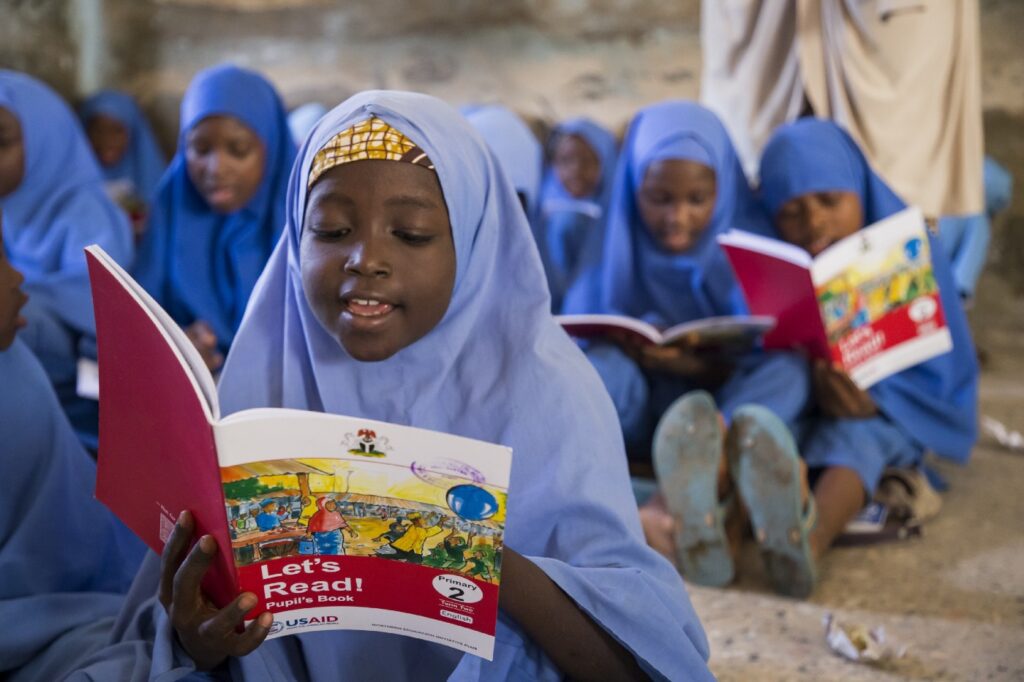UK and UNICEF partner Abuja to enrol 1.5m Northern girls in school
By Jeph Ajobaju, Chief Copy Editor
More than 1.5 million girl children have been enrolled in school in 10 years through a partnership between Abuja, the United Kingdom, and UNICEF, raising participation rate to nearly double in six states.
The troika implemented the Girls’ Education Programme (GEP) Phase 3 across Katsina, Kano, Niger, Sokoto, Zamfara, and Bauchi between 2012 and 2022, in response to the low levels of the enrolment of girls in school.
The partners reported at the national closing ceremony of GEP3 in Abuja that $109 million invested in the programme produced enrolment of an additional 1.5 million girls in school.
Attendance rate of girls in primary school in the six states rose from 43 per cent to 70 per cent, and gender parity improved from 0.73 to 0.97, a statement issued by UNICEF disclosed.
“In our commitment to drastically reduce the number of out-of-school children, Nigeria appreciates the scaling of evidence-based solution in tackling this menace as provided through the GEP3,” Education Minister Adamu Adamu said.
“As we continue on this path, we would leverage on the success of GEP3 to plan better, budget better, and make better decisions in putting more girl-child in school.”
UNICEF Nigeria Representative Cristian Munduate disclosed “GEP3 has not only been successful in getting more girls into formal and non-formal schools, but it has also improved learning outcomes.”
_____________________________________________________________
Related articles:
Doctor converts N50m donation to honour dead mom into scholarships for the living
US Mission stresses girl children empowerment through education
Kwankwaso promises free WAEC, NECO, JAMB examinations if elected President
__________________________________________________________________
Scaling up the approach
“GEP3 has raised the profile of educated girls, created new positive social norms in many communities and enabled a transformational shift in mindsets about the importance of girls’ education.
“It is critical that we advocate scaling of the approach in all states,” Munduate stressed, per The PUNCH.
“I express the deep appreciation of UNICEF to the UK government for this long-term commitment and funding for girls’ access to primary school in Northern Nigeria.
“Together there remains much work to be done, to ensure that girls transition to, and complete secondary education.
“This is important not only for the economic prosperity and wellbeing of the girl and her family, but to stem the high population growth expected in Nigeria.
“We see FCDO and the government of Nigeria as steadfast partners in this complex endeavour.”


